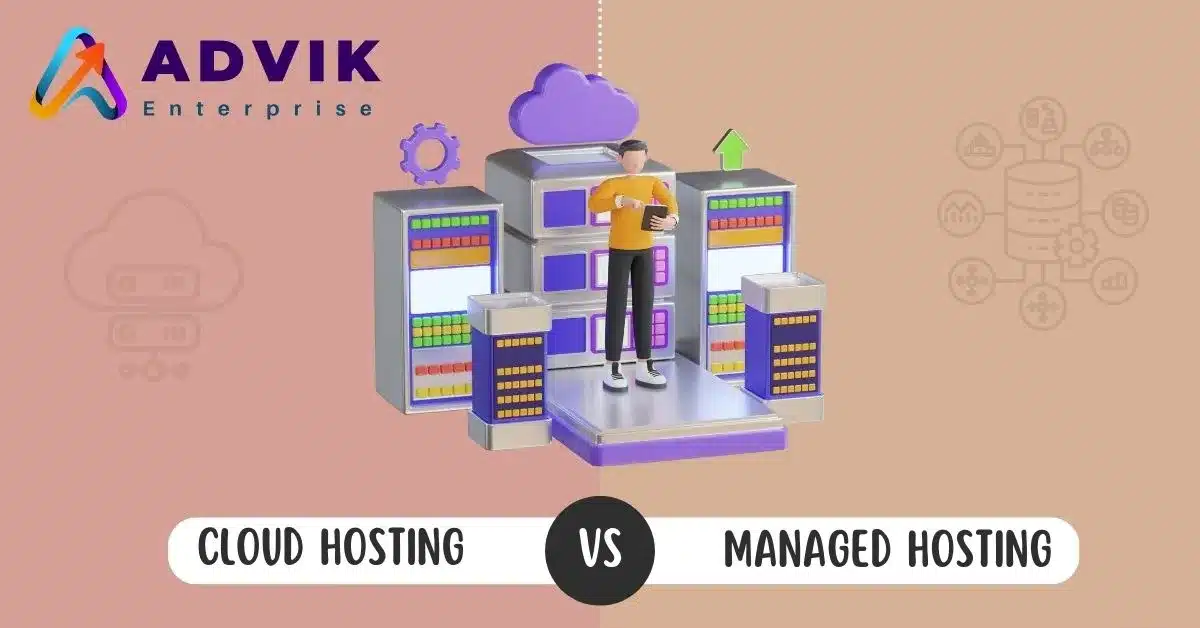
Cloud Hosting vs Managed Hosting: Which Fits Your Business?
In the ever-evolving digital landscape, businesses in the UK are faced with the choice of cloud hosting versus managed hosting when selecting an appropriate web hosting solution. Both options offer distinct benefits, but choosing the right one for your business depends on your specific needs, resources, and goals.
What is Cloud Hosting?
Cloud hosting is a versatile and scalable option where resources are spread across multiple virtual servers. In the UK, cloud hosting has seen a surge in popularity due to its flexibility, cost-efficiency, and minimal downtime. Providers like Amazon Web Services (AWS) and Google Cloud offer businesses the ability to quickly scale up or down based on demand, making it ideal for businesses with fluctuating or growing needs. With cloud hosting, businesses typically only pay for the resources they use, which can lead to lower costs, especially for startups or those with variable traffic.
What is Managed Hosting?
Managed hosting, on the other hand, offers businesses the benefit of having a dedicated server that is fully managed by a hosting provider. This includes server maintenance, security, updates, and troubleshooting. Managed hosting is popular among businesses that prefer to offload their IT management tasks and focus more on their core business activities. It is especially suited for larger enterprises or businesses with specific needs, such as regulatory compliance or high security. Managed hosting can be more expensive due to the additional services provided but provides a higher level of control and customisation.
Find your perfect hosting match—reach out to us for expert advice!
Key Differences Between Cloud and Managed Hosting
- Cost: Cloud hosting is often more cost-effective for smaller businesses or those with fluctuating traffic as it operates on a pay-as-you-go model. Managed hosting typically comes with a higher price tag due to the comprehensive services provided.
- Scalability: Cloud hosting offers excellent scalability, ideal for businesses that experience rapid growth or seasonal traffic spikes. Managed hosting is less flexible in this area, as it typically involves fixed server capacity.
- Maintenance: With cloud hosting, businesses often manage their own updates and security patches unless they opt for a managed service on top. Managed hosting, however, includes full management, including all maintenance and updates, freeing up time for businesses to focus on their operations.
Which One is Right for Your Business?
For smaller businesses or startups in the UK, cloud hosting may offer a more affordable and scalable solution. It’s ideal for businesses that need flexibility without committing to high costs or complex server management. On the other hand, larger businesses or those with specific technical needs may benefit from managed hosting, especially if they require more support and customisation for their hosting environment.
Frequently Asked Questions
What are the benefits of cloud hosting?
Cloud hosting is flexible, scalable, and cost-efficient. It’s ideal for businesses that experience fluctuating traffic and need on-demand resources.
How secure is managed hosting?
Managed hosting offers high security as the hosting provider takes responsibility for regular updates, backups, and monitoring to protect your data.
Which hosting option is best for a growing business?
Cloud hosting is often the best option for a growing business due to its scalability and ability to adjust resources based on demand.
Conclusion
Choosing between cloud hosting and managed hosting ultimately depends on your business’s size, growth potential, and the level of control you want over your hosting environment. While cloud hosting offers scalability and flexibility, managed hosting provides dedicated support and higher security for those who need it. By understanding the unique features of each option, UK businesses can make an informed decision that aligns with their objectives.
